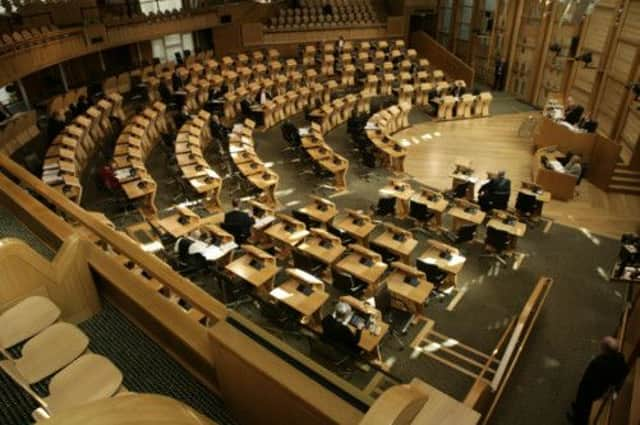Hyslop warns over state-appointed press watchdog


Newspaper chiefs have rejected the UK Coalition Government’s proposed Royal Charter drawn up after the Leveson report into phone hacking, amid concerns over interference with press freedom. The charter would see the creation of an independent regulator set up by the industry itself, but policed by a new state “recognition” panel.
The SNP Government wants to see this extended to Scotland and secured cross-party backing for this at Holyrood last night. But the industry has proposed its own Royal Charter plan limiting the role of Government.
Advertisement
Hide AdMs Hyslop told MSPs yesterday: “Indications from my discussion with the Advocate General are that the UK Government remains unwavering in wanting to present their own version of the charter to the Privvy Council.”
She added: “If the press impasse remains and if the recognition panel has no-one to recognise then it will report to both parliaments and stronger statutory measures may then be the only option.”
The Scottish Government has secured cross-party support for its proposal to sign up to the UK royal charter and to consider possible incentives for membership of a new regulatory body for the press.
The shake-up of regulation follows the publication of the report by Lord Justice Leveson last year into abuses perpetrated by the newspaper industry, including the hacking of murdered schoolgirl Milly Dowler’s phone while she remained missing. The outcry led to the closure of the country’s biggest selling paper, the News of the World.
An expert group, headed by former High Court judge Lord McCluskey, was appointed to look into the adoption of the Leveson principles in Scotland, but it attracted criticism after suggesting compulsory regulation of all publications, while Leveson had backed a voluntary approach to newspapers’ involvement.
Ms Hyslop added: “The expert group presented a system which could work under Scots law but made assumptions about the ability to either achieve political consensus or press agreement around that. It may be that if a voluntary approach fails that we would need to look at alternatives, but that is not where we are now.”
Advertisement
Hide AdBut the Scottish Government’s call for the Royal charter to include new protections for the recently deceased has been rejected by the Coalition.
It followed harrowing evidence by Margaret and James Watson who said negative reporting about their daughter Diane led to their teenage son Alan committing suicide. Sixteen-year-old Diane was stabbed to death by fellow pupil Barbara Glover after a playground argument in their Glasgow school in 1991.
Advertisement
Hide AdBut Ms Hyslop said Coalition ministers have “indicated they do not agree this should appear in the charter,”, amid concerns it could inadvertently thwart comment on individuals like Robert Maxwell or Margaret Thatcher in the aftermath of their deaths.
Labour culture spokeswoman Patricia Ferguson said the Royal Charter will provide a new system for “independent self-regulation” which seeks to incentivise rather than compel.
“It will be totally independent and it will operate on the guiding principle of freedom of the press,” she said.
“The regulator will have the power to order newspapers to publish apologies when they get information wrong. Crucially, those apologies will be given more prominence than has hitherto been the case.”
But there are also concerns that a new system could hammer the cash-strapped regional press in Scotland.
It must not create a “huge bureaucratic burden which is also very expensive”, Tory culture spokeswoman Liz Smith said.
Advertisement
Hide Ad“Some regional papers are facing huge financial constraints and, in some cases, finding it very difficult to operate at all,” she told MSPs.
“We do not do anything that will further jeopardise their future.”